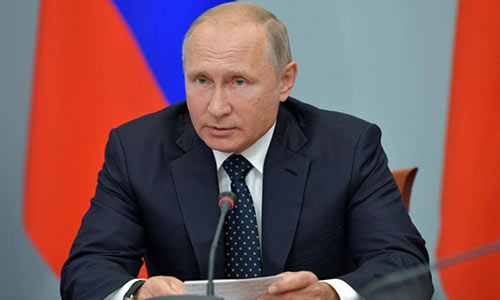INTERNATIONAL 22/10/2023
UK Authorities Punish Nigerian Doctor Over Sex With Patient

Medical authorities in the United Kingdom (UK) have suspended a Nigerian doctor, Ewere Onyekpe, for having a sexual relationship with a
patient including in a hospital’s toilet.
The Medical Practitioners Tribunal of the General Medical Council (MPT of the GMC) – a medical regulatory body in the UK – had in January imposed a sanction of six months on Mr Onyekpe’s practising licence, after he was found guilty by an investigative tribunal that looked into the matter.
The tribunal’s verdict, which took effect in February, was due for review six months later.
But before the case was due for review, a UK independent body that focuses on ethics and standards – Professional Standards Authority for Health and Social Care (PSA) – appealed against the MPT’s decision.
PSA said it found the punishment too lenient on some grounds and challenged MPT’s decision before a UK law court.
The court found PSA’s argument logical and ordered MPT to stage a retrial of the matter, taking into consideration one of the grounds of appeal.
Mr Onyekpe, a Nigerian-born medical doctor, had in June and July 2020 had a sexual relationship with an unnamed female. The sexual relationship was said to have begun after Mr Onyekpe treated the patient “in his capacity as a locum registrar in the Accident and Emergency (“A&E”) department at the Whittington Hospital in London.”
The details of the act are contained in a court judgement obtained by press which indicated that both the doctor and the patient continued their sexual relationship until 24 July 2020, when the patient reported to the police that she had been raped in the toilet by Mr Onyekpe.
Apart from having sex with the patient in the hospital’s toilet on the night of 10 June, Mr Onyekpe still went to the patient’s home the following morning and had sex with her.
The police, while continuing with its investigation, had also reported the case to the General Medical Council which in turn set up the tribunal.
The medical tribunal said it found that the charges against the doctor, “all of which he admitted, amounted to a course of conduct which amounted to ‘serious misconduct’”.
“Dr Onyekpe also conceded that his fitness to practise was impaired by reason of this misconduct, and the MPT agreed,” a news report on ethics stated.
The decision to suspend the doctor was made on 19 January 2023, and the MPT’s order took effect 28 days later, with a review scheduled for the end of a six-month period.
In a witness statement provided during the tribunal, Mr Onyekpe acknowledged and said; “I appreciate that what I did was awful and that I let down myself and my family and my colleagues.
“I also accept this because the power imbalance between me as a doctor and that of the patient, it can be perceived that I took advantage of my professional position in pursuing this brief sexual relationship, consensual though it may have been.”
The tribunal heard the case and found Mr Onyekpe guilty of misconduct. His licence was then suspended for six months, and his case was meant to be reviewed between August and September.
Call for case review
Reacting to the six-month suspension of Mr Onyekpe, the Professional Standards Authority for Health and Social Care (PSA) said it was challenging the medical tribunal’s decision on some grounds.
The PSA is an independent body that promotes the health, safety and well-being of patients, service users and the public. It does this by improving the regulation of people who work in health and social care and running the Accredited Registers programme for roles not regulated by law. The PSA is accountable to the UK Parliament.
The PSA said it identified procedural irregularity in the charges against Mr Onyekpe by the medical tribunal, saying the charges “did not adequately reflect the seriousness of his misconduct.”
A court document obtained by press quoted a judge, Thomas Linden, of the High Court of Justice King’s Bench Division Administrative Court, that; “The particular criticism which the PSA makes is that there should have been an allegation that Mr Onyekpe knew or ought to have known that Patient A was vulnerable or likely to be vulnerable. The lack of such an allegation meant that the full gravamen of his misconduct was not considered by the MPT (“Ground 1”).
“Second, that the sanction of six months’ suspension of Mr Onyekpe’s registration was unduly lenient and insufficient for the protection of the public in any event. In particular, nothing short of erasure would have been sufficient to maintain public confidence in the profession, as well as proper professional standards and conduct for members of the profession (“Ground 2”).
“Third, that the reasons given by the MPT for its decision on sanction were inadequate (“Ground 3”).”
Mr Linden in his verdict which was delivered on 4 August, and which was attended by parties through Cloud Video Platform, quashed the tribunal’s decision.
The judge cited deficiencies in the decision-making process.
He said the case was fundamentally flawed because it failed to consider the events between the doctor and the patient adequately. He, therefore, ruled that a new medical tribunal be set up to investigate the matter.
The judge said: “…In short, I allowed the appeal on Ground 1 and quashed the MPT’s decision, I decided not to express a concluded view on Grounds 2 and 3, and I remitted the matter to a freshly constituted MPT. What follows are my reasons for that decision.”
While giving reasons for his decision, Mr Linden revealed that evidence presented through WhatsApp messages exchanged between the doctor and the patient included pornographic materials.
The judge said; “…My conclusion on Ground 1 was that the decision-making of the GMC and the MPT in this case was fundamentally flawed because it did not give any or any adequate consideration to the evidence of what Patient A told Onyekpe about her circumstances.
“In particular, there was a failure adequately to consider (a) whether she was vulnerable for the purposes of the Sanctions Guidance and, if so, the degree of her vulnerability and, (b) what Onyekpe knew or ought to have known about these matters and what influence this had on his actions.”
Mr Linden emphasised that these questions should have been raised by the allegations the MPT was tasked with considering and should have been thoroughly examined in the context of the entire body of evidence, but that they were not.
Mr Onyekpe, born in Nigeria, received his medical qualification in 2003 from Kharkiv State Medical University in Ukraine and began his medical practice in Nigeria, primarily within the Nigerian Army.
According to court documents, in 2008, he moved to the United Kingdom and pursued a Master’s in Public Health at the London School of Hygiene and Tropical Medicine.
He began his medical practice in 2010. Between 2013 and 2018, he completed a postgraduate diploma in emergency medicine at Manchester Metropolitan University and, starting in 2016, entered a formal training programme in emergency medicine. He completed his ST3 training in 2019 and worked night shifts in the A&E department at the Whittington from August to November 2019 and again from 4 March to 3 July 2020.



